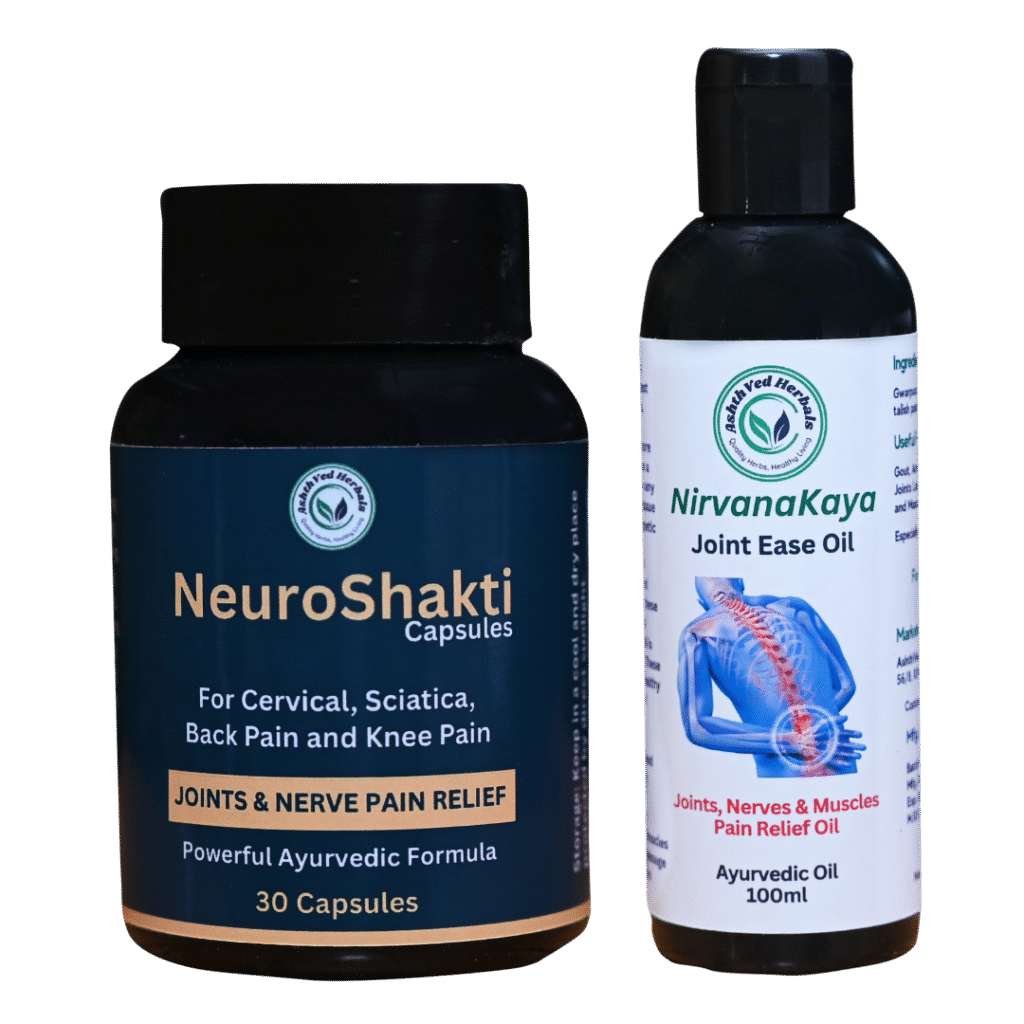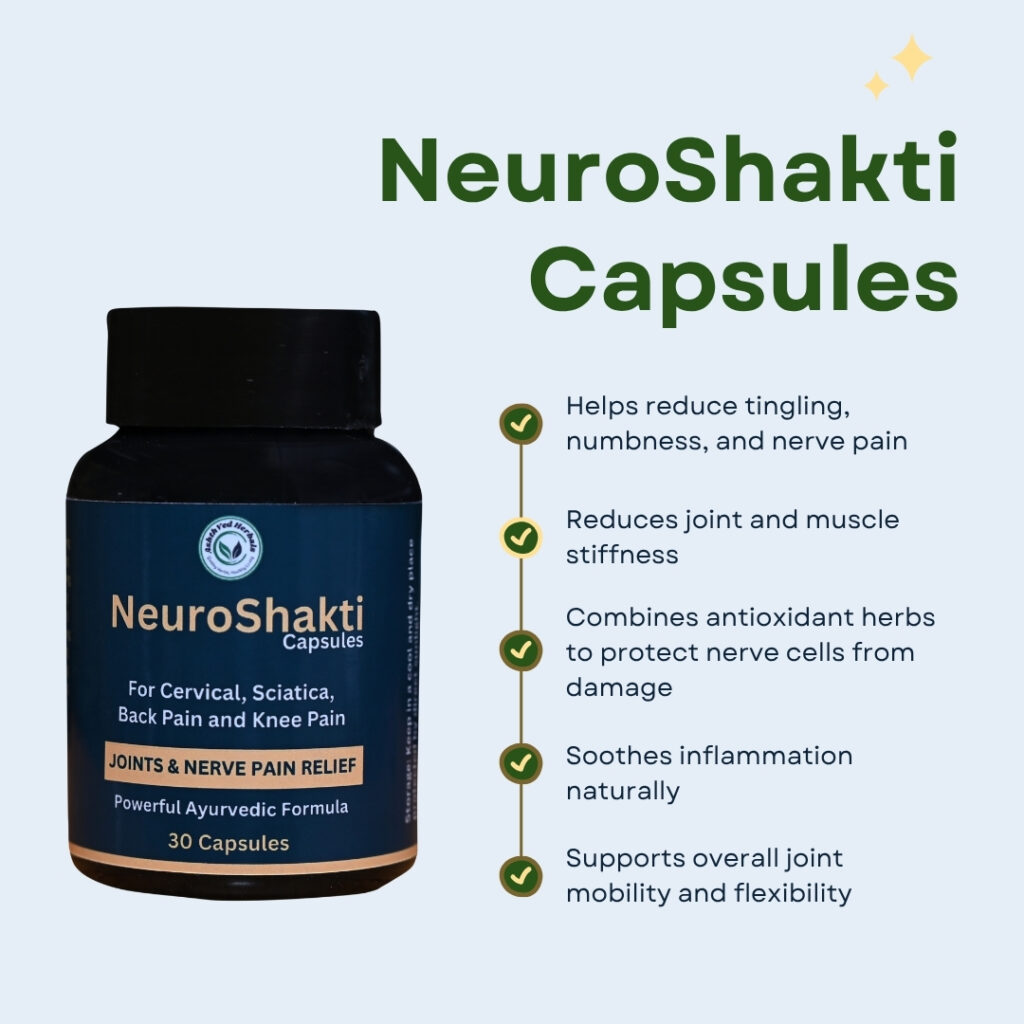Joint and muscle pain can be frustrating—whether it’s due to age, injury, arthritis, or a hectic lifestyle. While modern painkillers may give quick relief, they often come with side effects. Ayurveda, the 5,000-year-old natural healing science, offers a safer and more holistic way to manage pain—by targeting the root cause and supporting overall joint health.
In this article, we’ll explore the top Ayurvedic herbs known for their anti-inflammatory, pain-relieving, and strengthening properties.
1. Ashwagandha (Withania somnifera) – The Strength Builder
Known as the “Indian Ginseng,” Ashwagandha is a powerful adaptogen that helps reduce stress-related inflammation. It supports muscle strength, enhances stamina, and relieves stiffness in joints.
Benefits:
Reduces joint swelling and pain
Improves mobility and flexibility
Strengthens muscles and bones
How to Use: Often consumed in capsule or powder form; can also be part of herbal formulations for pain relief.
2. Guggul (Commiphora mukul) – The Detoxifier
Guggul is a resin obtained from the mukul tree, famous in Ayurveda for its powerful anti-inflammatory and cholesterol-lowering effects. It is particularly beneficial in arthritis and chronic joint conditions.
Benefits:
Flushes out toxins from joints
Reduces pain and stiffness
Improves blood circulation
How to Use: Used in classical Ayurvedic medicines like Yograj Guggul and Mahayograj Guggul.
3. Nirgundi (Vitex negundo) – The Pain Reliever
Nirgundi is one of Ayurveda’s most effective herbs for local pain relief. Its leaves and seeds contain compounds that fight inflammation, swelling, and nerve pain.
Benefits:
Reduces swelling and inflammation
Relieves muscle spasms
Soothes nerve-related pain (sciatica, cervical)
How to Use: Commonly used as oil for topical application or in decoctions.
4. Shallaki (Boswellia serrata) – The Mobility Enhancer
Also known as Indian Frankincense, Shallaki has powerful boswellic acids that prevent cartilage breakdown and promote joint flexibility.
Benefits:
Reduces joint inflammation without side effects
Improves knee and hip mobility
Supports cartilage regeneration
How to Use: Available in capsule form and as an ingredient in joint care oils.
5. Rasna (Pluchea lanceolata) – The Soothing Herb
Rasna is known in Ayurveda for its ability to balance Vata dosha, which is often the cause of joint pains.
Benefits:
Reduces stiffness and heaviness in joints
Supports healthy nerve function
Relieves back pain and arthritis discomfort
How to Use: Found in herbal oils, decoctions, and Ayurvedic tablets.
How These Herbs Work Together
While each herb has unique benefits, combining them in the right proportion—as done in Ayurvedic formulations—creates a synergistic effect for faster and longer-lasting relief. They don’t just mask pain; they reduce inflammation, nourish joints, and prevent further damage.
Final Words
Ayurveda teaches that pain is a signal of imbalance in the body. Herbs like Ashwagandha, Guggul, Nirgundi, Shallaki, and Rasna address both symptoms and root causes, helping you move freely and live without discomfort.
If you’re looking for an authentic, doctor-approved herbal blend for joint and muscle pain, check out AshthVed Herbals Joint Pain Relief Kit—a natural way to restore flexibility and strength without side effects.




